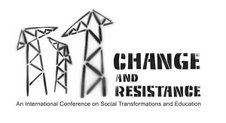By: Dr. David Silvera
In his book “The little book of wisdom” the Dalai Lama wrote on the ripple effect, saying: ”If an individual human being eventually become a nice, calm, peaceful person, than it automatically brings some kind of positive atmosphere, and you have a happy family”.
He continues to say: “Happiness comes from kindness. Happiness cannot come from hatred or anger”.
Regarding the effect of happiness not on individual but a group of people, he wrote: “Genuine compassion must be acting on the basis of respect, and the realization or recognition that others also, just like me, have the right to be happy”.
“Compassion compels us to reach out to all living being, including our-so called enemies, those people who upset or hurt us”.
The relationships between the State, Civil Society and the Citizens have changed, as the democratic ideology and practice prevails. It was the American president, Richard Nixon who said: “After an era of confrontation, the time has come for an era of negotiation”.
One may still face violence – usually, at the beginning of a conflict. At the end –to end peacefully a conflict, one may have to talk, to negotiate, to come to an agreement.
This is the social change that modern society has to adopt.
Many of the patterns and processes which characterize conflict is one era also characterize it in others. Conflicts are universal –and so are the the dealings with them.
Negotiation by methods of mediation is the answer to modern era relationships, individually and collectively, between the state and the civil society.
Subscribe to:
Post Comments (Atom)

No comments:
Post a Comment